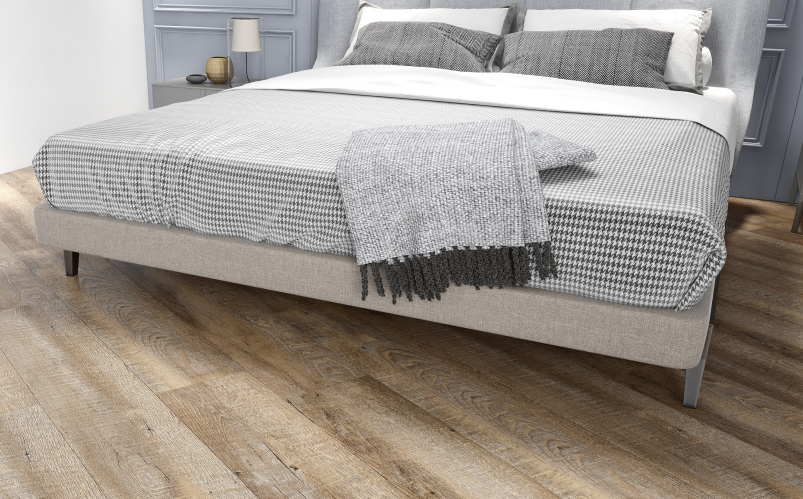When it comes to flooring choices, water resistance is a crucial factor, particularly in spaces prone to moisture exposure such as kitchens, bathrooms, and basements. Luxury Vinyl Tile (LVT) flooring stands out as a superior option in this regard, offering distinct advantages over multilayer solid wood flooring.
LVT flooring is engineered to be inherently water-resistant, making it an ideal choice for areas where spills, splashes, and high humidity are common.
The composition of LVT includes multiple layers, with a top wear layer that serves as a protective barrier against water infiltration. This not only guards the flooring against immediate damage but also prevents long-term issues such as warping, swelling, or mold growth.
On the contrary, multilayer solid wood flooring, while exuding natural beauty, is more susceptible to water damage. Wood is inherently porous, absorbing moisture and expanding when exposed to water. This characteristic makes multilayer solid wood flooring less suitable for areas prone to spills or high humidity, as it may lead to structural damage over time.
The water-resistant nature of LVT flooring extends its application beyond just residential spaces. Commercial settings with high foot traffic and increased risk of spills can benefit significantly from the durability and resilience of LVT. In contrast, multilayer solid wood flooring may require more careful consideration of its placement to avoid potential water-related issues.
In conclusion, LVT flooring emerges as the superior choice when it comes to water resistance advantages over multilayer solid wood flooring. Its engineered design and top wear layer provide a reliable shield against moisture, making it a practical and durable option for spaces where water exposure is a concern. Whether for residential or commercial use, LVT flooring offers a winning combination of aesthetic appeal and functional resilience.

